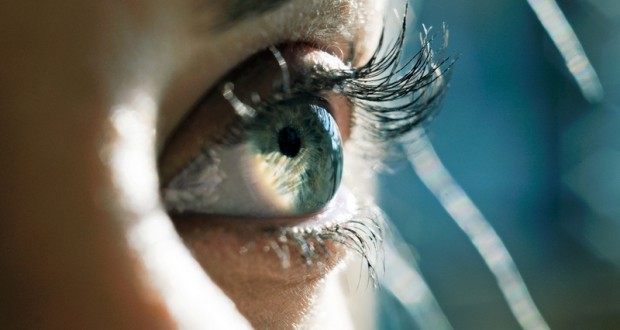By: Red Hot Mamas
Published: March 30, 2015
Prevent Blindness America (PBA) has designated April as Women’s Eye Health and Safety Month in an effort to educate women about the steps they can take today to help preserve vision in the future.
According to Prevent Blindness America and the National Eye Institute, more than 3.6 million Americans age 40 and older suffer from visual impairment, including blindness, and 2.3 million of these are women.
Most women understand how important it is to visit the doctor regularly so they can stay healthy and feel their best. However, many don’t realize this means having their eyes checked as well. Unfortunately, many women don’t know about their heightened risk of visual impairments and are not doing enough to care for their healthy sight.
The Facts:
- 2/3 of blindness and visual impairment occurs in women
- More than ¾ of visual impairment is estimated to be preventable or correctable
- 1/3 of age related macular disease and cataract may be due to smoking
Risk factors for vision problems in women include:
- Obesity
- Smoking
- Age
- Poor nutrition
Women are at greater risk of losing their vision than men simply because women live longer. Women are more likely to develop age- related eye diseases such as macular degeneration, glaucoma and cataracts, all which can cause uncorrectable vision loss. Women may also experience changes in their vision due to hormonal fluctuations during the life cycle. For example, hormonal changes during pregnancy and menopause can lead to dry eye syndrome, and fertility treatments may cause light sensitivity due to migraines, dry and puffy eyes, and changes in eyesight.
Regular visits to an eye care professional (ophthalmologist or optometrist) are an important step in preserving your sight. It is recommended that women age 40 and older make it a priority to have a dilated eye exam to help prevent vision loss. It is also important to have a dilated eye exam any time a change in vision is detected.
Recommendations that you can do to help maintain good vision:
- Monitor your vision: Check it often, and check it one eye at a time. If you notice a change in your vision, notify your eye doctor right away
- Do not smoke: Smoking significantly increases the risk of complications with certain eye diseases, especially in women.
- Eat a well-balanced diet: Eat leafy green vegetables, oily fish and fruits. Vitamin C, vitamin E, beta carotene, lutein, zeaxanthin, zinc and omega-3 fatty acids are helpful in slowing down the progression of many eye diseases. If you choose to take vitamin supplements, please make sure to consult your doctor.
- Exercise: This will aid in maintaining a healthy weight and good cardiovascular health. Obesity, high blood pressure and high cholesterol can lead to specific vision complications
- Control your diabetes: Uncontrolled diabetes can cause permanent damage to eye structures
- Wear sunglasses and UV protection: This can slow down the progression rate of cataracts
- Educate yourself: About the possibility of a family history of eye disease and about eye diseases associated with your general health
- See your general medical doctor regularly: Routine physicals can lead to early diagnosis of potential diseases of the eye
For additional information on women’s eye health:
Prevent Blindness America (PBA)www.preventblindness.org/ The National Eye Institute (NEI), part of the National Institutes of Health (NIH) www.nei.nih.gov American Foundation for the Blind www.afb.org American Optometric Association www.aoa.org The Lighthouse National Center for Vision and Aging www.lighthouse.org The Foundation of the American Academy of Ophthalmology (AAO) www.eyecareamerica.org/
Continue reading below…
The National Library Service for the Blind and Visually Handicapped www.loc.gov/nls/ The American Academy of Ophthalmology www.aao.org Guide Dogs for the Blind www.guidedogs.com Glaucoma Research Foundation www.glaucoma.org Macular Degeneration Foundation www.eyesight.org American Diabetes Association www.diabetes.org
 Red Hot Mamas In Charge of Change.
Red Hot Mamas In Charge of Change.




